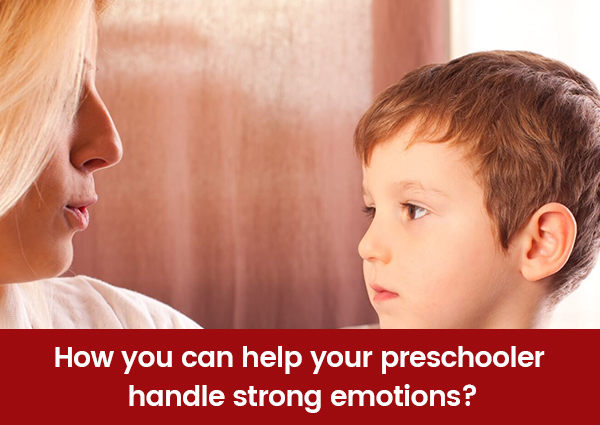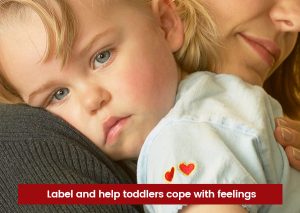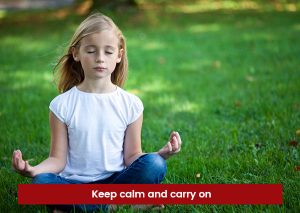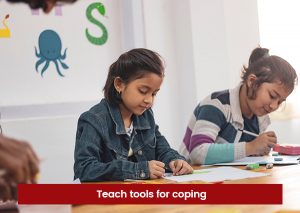
Helping Your Preschooler Handle Strong Emotions
Helping your Preschooler Handle Strong Emotions
In this article, you will learn about helping your preschooler handle strong emotions. Even at age 3 or 4, your child is very much her own person. He has distinct likes and dislikes, and his personality is developing more every day. He is getting better at using words to express how he’s feeling, which means fewer tantrums. His mood may still change drastically from one moment to the next, but he is more likely to talk about being angry or sad rather than having a meltdown.
Strong emotions may be a bit more for your preschool-aged child to handle because let’s face it even grown adults have trouble handling emotions from time to time.
So, here are a few tips on how you can help your preschooler handle strong emotions:
1. Rupture and Repair

Parents are human. We mess up, we say the wrong thing, and sometimes we let our own emotions get in the way. When this happens, we can help our kids a great deal by talking to them about what happened and how we behaved. We shouldn’t be afraid to say sorry when we make mistakes. Be open about your own story. Explain how you overreacted because you felt angry or afraid. By relaxing and acknowledging your reaction, you are demonstrating how to calm down, a lesson your children can apply when they find themselves in similar situations. Regarding this Best Daycare franchise in India will do a great job.
2. Teach Your Child About Emotions

It’s important for your child to recognize his feelings. Start teaching her about her emotions by naming them for him. Say, “You look sad right now,” or “I can tell you are mad.” Name your emotions too by saying, “I am sad that we can’t go visit Grandma today,” or “I’m angry that those boys were being mean today.” You can also strike up conversations about feelings by talking about characters in books or on TV shows. Every once in a while and ask questions such as, “How do you think this character feels?” With practice, your child’s ability to label his emotions will improve.
3. Label and help Toddlers Cope with feelings

Emotions like anger, sadness, frustration, and disappointment can be overwhelming for young children. Naming these feelings is the first step in helping children learn to identify them and communicates to children that these feelings are normal. This might mean acknowledging an 18-month-old’s anger at having to leave the playground, validating a two-year-old’s frustration at his block tower repeatedly falling or empathizing with a three-year-old’s sadness that his grandparents are leaving after a long visit.
4. Keep Calm and Carry on

We’ve all either seen or been that mother who is getting into a full-on argument with their two-year-old about putting a sweater on, or that father who is practically throwing his own tantrum as his kid cries over what he’s served for lunch. No matter what the scenario, losing our temper is never the solution. Letting our emotional right brains take over only teaches our kids to feel as out of control as we’re behaving. Our own unresolved traumas and negative early experiences will constantly inform our reactions to our kids. Be aware of what triggers you, and be sure to separate the emotions these events stir up from your kids’ independent experience.
5. Don’t Confuse Emotions for Weakness

Sometimes parents are embarrassed by overly emotional kids. A father may cringe watching his son cry after losing the baseball game or a mother may usher her daughter out of dance class at the first sign of tears. But crying isn’t a bad thing. And it is OK for kids to have intense feelings. Being emotional doesn’t make a child weak. It is important, however, for kids to learn to recognize and understand their emotions. In fact, emotional awareness can help kids be mentally strong—even when they feel those emotions deeply. Avoid calling your child a wimp or assuming his sensitivity has to be fixed. Everyone has a different temperament and your child may have been born with more emotional sensitivity than you are used to.
6. Teach Tools for Coping

If your 18-month-old is angry that playtime is over, guide her to stamp her feet as hard as she can or to draw how angry she is with a red crayon. Help a two-year-old who is frustrated at not being able to get the ball into the basket brainstorm other ways to solve the problem. Take a three-year-old who is fearful about starting a new school to visit his classroom beforehand to meet the teachers and play on the playground so that the unfamiliar can become familiar.
If You Are Looking For Playschool In Delhi





Leave a Reply